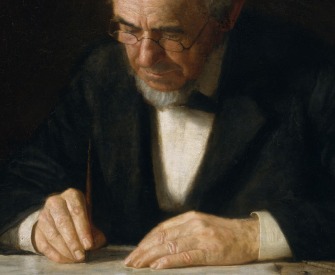Working in the garden, taking care of the poultry, calves, and lambs, milking the cows, and all the other chores that fall to the lot of farm women may each appear small in itself, but the results go a long way in helping to “feed the world.” Sometimes I try to imagine the people who will eat the eggs I gather or the butter from my cream and wear the clothes made from the wool of the lambs I help to raise.
Putting up the school lunch for the children or cooking a good meal for the family may seem a very insignificant task as compared with giving a lecture, writing a book, or doing other things that have a larger audience, but I doubt very much if in the ultimate reckoning they will count as much.
If, when cooking, you will think of yourself as the chemist that you are, combining different ingredients into a food that will properly nourish human bodies, then the work takes on a dignity and interest. And surely a family well-nourished with healthful food, so that the boys and girls grow up strong and beautiful while their elders reach a hale old age, is no small thing.
It belittles us to think of our daily tasks as small things, and if we continue to do so, it will in time make us small. It will narrow our horizon and make of our work just drudgery.
There are so many little things that are really very great, and when we learn to look beyond the insignificant-appearing acts themselves to their far-reaching consequences, we will “despise not the day of small things.” We will feel an added dignity and poise from the fact that our everyday round of duties is as important as any other part of the work of the world.
And just as a little thread of gold, running through a fabric, brightens the whole garment, so women’s work at home, while only the doing of little things, like the golden gleam of sunlight runs through and brightens all the fabric of civilization.
©2007 by the Curators of the University of Missouri. Used with permission of University of Missouri Press.
From her newspaper column “As a Farm Woman Thinks.” Wilder became a school teacher in the Dakota Territories at the age of fifteen in 1882. Visiting her journalist daughter in San Francisco in 1915, she wrote that she wanted “to do a little writing” with her “to get the hang of it a little better, so I can write something perhaps I can sell.” Wilder published the first of her eight Little House novels in 1932 at the age of sixty-five.
Back to Issue




